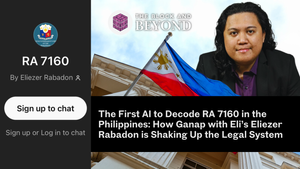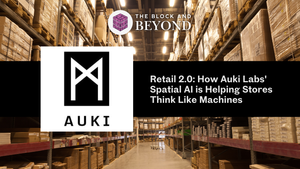Neon joins a growing trend of AI-native tools redefining the UX stack, from AI agents in browsers to decentralized design systems in Web3.
From ChatGPT to Perplexity to Grok, artificial intelligence is steadily becoming part of our everyday digital routines. While we're still in the early phases, the direction is clear: AI is starting to transform not just what we use, but how we engage with the digital world around us.
One of the most recent developments in this AI shift is happening in a familiar yet often overlooked part of our digital lives: web browsers.
Neon: Opera's New AI Browser
Opera has unveiled Neon, a reimagined browser that positions AI at the core of how users browse, search, and interact online. Henrik Lexow, Senior AI Product Director at Opera, shared in the official press release, "We're at a point where AI can fundamentally change the way we use the internet and perform all sorts of tasks in the browser."
Meet Opera Neon, a browser for the agentic web
— Opera (@opera) May 28, 2025
Opera Neon can browse with you or for you, take action & help you get things done.
Our playground to redefine what a browser can be.
🧩 Invite only. Sign up now: https://t.co/E2XYInZkYc pic.twitter.com/nMaxejPXGv
Neon's built-in AI agent, previously dubbed the "Browser Operator," lets users automate routinary digital tasks. It also allows the browser to comprehend and interact with web page content, like summarizing articles, drafting emails, or extracting data, all while preserving user security and privacy.
Unlike traditional browsers, Neon will launch under a paid subscription model. Pricing details are yet to be confirmed, but a waitlist is now open for early access.
Neon reflects a broader shift in the tech space. AI is no longer just an added feature that enhances existing tools; it is becoming a core component of how products are designed and experienced.
AI in User Experience
Opera's bold move signals a deeper shift toward experience-driven innovation. While many still equate user experience (UX) with visual design, the discipline goes much deeper.
Shannen Yu Sapar, co-founder of UX Davao, told The Block and Beyond:
UX in itself is more of research and psychology, understanding the psychology of the users and your customers.
By embedding AI directly into Neon's functionality, Opera is reshaping how users engage with browsers, allowing them to move from passive clicking to intelligent and agentic interaction. It's considerably a form of UX that doesn't just look good but actively adapts to user behavior.
As Shannen added,
With tech in general, it is quite fast-paced... If you want to be in the loop of what is happening, like new technologies and stuff like that, you need to be consciously updating or trying to upskill.
AI is already reshaping how people experience the web, and Neon is a clear step in that direction. As the narrative continues to unfold, users can look forward to what else AI has to offer and how this could transform how they experience the digital world.










